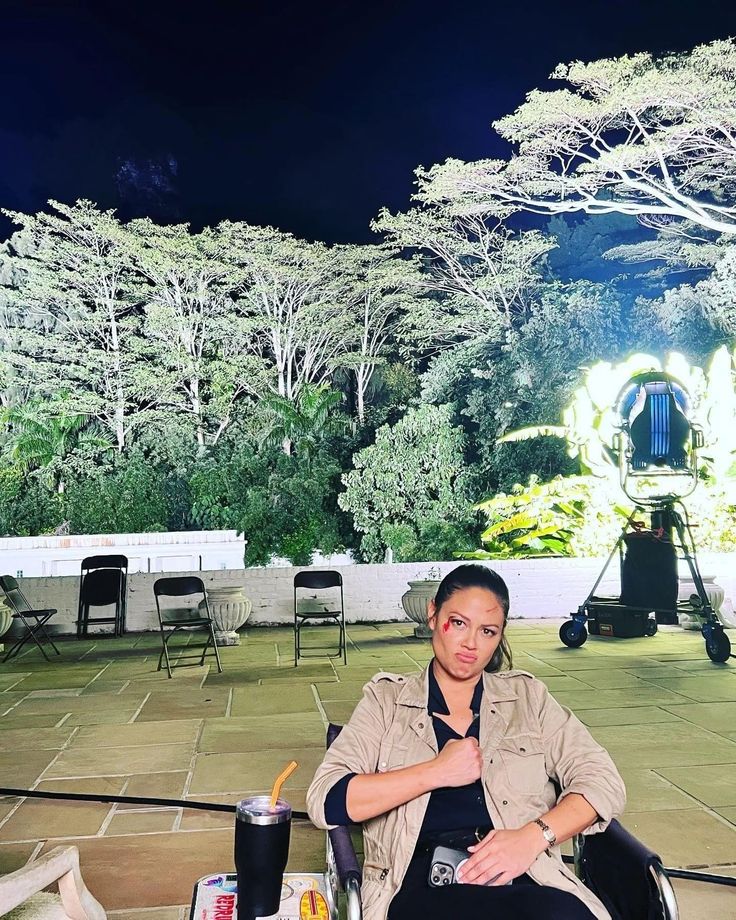
NCIS Hawai’i already has a major difference that sets it apart from previous spinoff entries in the CBS franchise. The new series is the fourth television show to bear the NCIS title, following the original series and its spinoffs based in Los Angeles and New Orleans. NCIS Hawai’i season 1 premiered in September 2021 and has already shown itself to be a worthy successor to the name, while also bringing plenty of new and exciting elements to the fore.
As the title suggests, the primary focus of the series has been the NCIS, short for Naval Criminal Investigative Service. In each city, the NCIS solves cases that merge key tropes of standard police procedurals and military drama narratives. Each iteration of NCIS focuses on the agency branch in its titular location. Occasionally, a branch will collaborate with other agencies. The original series saw the assistance of the Federal Bureau of Investigation, and NCIS: Los Angeles infrequently featured the Los Angeles Police Department.
NCIS: Hawai’i is a different beast entirely. The Hawai’i branch frequently engages with other agencies and has done so almost more times in just one season than the combined total of all of the other installments. Several episodes even see the series leads interacting with the Honolulu Police Department. Kate Whistler, the love interest of Lucy, is an agent of the Defense Intelligence Agency, bringing the DIA and Hawaii’s NCIS branch into close contact, and sometimes co
To have the NCIS interact with other federal agencies so frequently is extremely new to this spinoff. Historically, the series has been extremely insular, and members of the NCIS have more often than not expressed deep skepticism of other investigative government agencies, fearing that the slow pace of bureaucracy will hinder the NCIS’s ability to catch criminals in time. That doesn’t appear to be the case with NCIS: Hawai’i. This time, collaboration and cooperation is a key tenet, and often results in positive outcomes. The cohesiveness of interagency work infuses the new spinoff with a fresh outlook on how best to solve a case.
Teamwork is a core message of NCIS, from the first series through every spinoff. But it is usually limited to teamwork occurring inside the NCIS itself. NCIS Hawai’i is turning that trope on its head by fostering an environment of inclusion and a goal of mutual benefit across the entire investigative field.
NCIS: Hawaiʻi Is Redefining the Spinoff Playbook
Ever watch a spinoff and think, “Isn’t this just the original wearing a Hawaiian shirt?” Well, NCIS: Hawaiʻi isn’t that. From the moment the title pops up, you’re hit with a fresh breeze—sun, surf, and… serious crime-solving. This series doesn’t just spray on tropical visuals; it injects new heart, perspective, and stakes into the NCIS family.
Setting the Scene—More Than Just a Pretty Island
Here’s the deal: while other NCIS spinoffs mostly stayed within their comfort zones (big offices, blue-lit corridors, familiar beats), NCIS: Hawaiʻi sets up camp in paradise—but never stays superficial. The sunrise over the Pacific becomes a plot device, a mood setter, often haunting or hopeful. It’s not just backdrop; it’s character.
A Female Lead at the Helm—Breaking Franchise Patterns
Raise your hand if you noticed right away: NCIS: Hawaiʻi stars a woman as the lead. That’s groundbreaking for the NCIS world. It’s not just window dressing—Agent Jane Tennant is a complex, driven character with her own burdens, strengths, and motivations. She brings empathy and grit—but in a way that feels authentic and fresh.
Why a Female Lead Matters for Dynamics
-
It flips tired tropes—yes, we get strong, capable, layered female characters.
-
Team interactions change when respect isn’t assumed—it’s earned.
-
Edge-of-your-seat moments feel more unexpected because emotional dynamics shift.
Hawaiian Culture Woven into the Story, Not Just a Postcard
NBC didn’t just fly in a camera crew and call it “local flavor.” There’s real respect here: language, customs, and community threats rooted in island life. Stories involve locals, cultural tensions, and environmental stakes. It’s lived-in, not pasted on.
Language and Lāhui (Community) Brought to Light
Ever pause and wonder what “Aloha ʻOe” really means in a conversation, or why certain rituals matter at all? The writers sprinkle in te reo Hawaiian and cultural nods—not because it’s trendy, because it’s meaningful. That gives heft and emotional resonance you don’t get in the typical office-set procedural.
Environmental Storylines That Pack a Punch
Episode plots don’t revolve around generic “national threat.” Often, issues like endangered species, coral reef crimes, or local protests are center stage. That’s smart, relevant writing—a crime procedural with real-world stakes, rooted in island reality.
Location Is a Living, Breathing Character
Honolulu isn’t just a backdrop; it plays a starring role. The team cruises scenic routes, scuttles through mauka (mountains) and makai (ocean)—each terrain brings new investigative challenges. The landscape shapes the storytelling in ways other NCIS spinoffs never dared.
Case Types You’d Never See in D.C. or L.A.
Think smugglers with sea turtles, black market coral rings, or crimes hidden by dense jungle trails. These plots feel exotic, yet rooted in lived experience. And while it’s fun to watch, it also reminds you there are real dangers where paradise meets reality.
Grit Where You Least Expect It
It’s easy to picture tropics and think “light.” Instead, NCIS: Hawaiʻi surprises you with gritty conflicts—cultural clashes, military-civilian friction, surfers dragged into crime scenes. That tension sparks real drama, not just spectacle.
Team Dynamics That Feel Organic—and Evolving
The NCIS team in Hawaiʻi doesn’t feel like a carbon copy of NCIS or NCIS: LA with island accents. Their synergy feels earned. Trust is built over volcanic eruptions of conflict as well as sunrise breakfasts. You see their bonds form under pressure, not just written into the script.
A Mix of Generations, Styles, Personalities
The team ranges from wise locals to fresh-faced agents. Each brings different strengths: cultural knowledge, tech prowess, emotional insight. That mix makes their interactions feel lively, unpredictable—you never know who’ll steal the scene next.
Family—Military, Fictive, and the Island Way
There’s real attention paid to family—both blood and chosen. Military ties run deep; personal histories constantly intersect with cases. Then there’s the sense of “ohana,” local family bonds that extend beyond blood and badge.
Emotional Depth Paired with High-Octane Action
This is where NCIS: Hawaiʻi sweet-talks you with surf-chasing visuals, then drops you in gut-wrenching emotional turmoil. It’s not afraid to get real—loss, legacy, responsibility, and love are all part of the ride.
Balancing Big Set Pieces with Quiet Moments
You’ll get chases on horse trails and underwater rescues… but you’ll also get tea and truth moments at dusk. That balance between spectacle and soul makes the show feel multidimensional.
Consequences That Linger Off-Screen
Deaths, ethical decisions, and cultural wounds don’t wrap up by the end credits. Consequences carry forward—making the world feel lived-in rather than episodic. That kind of continuity deepens investment.
A New Take on Procedural—With Island Flair
NCIS: Hawaiʻi’s crime-of-the-week bits? They come with a twist: surfboards, lava tubes, beachside bonfires. Who said a procedural couldn’t have a soundtrack of ukulele strums or a soundtrack of crashing waves?
Genre-Bending That Feels Natural
The show dips into detective work, military protocol, family drama, cultural exploration—all wrapped in mystery. That blend keeps you guessing and balances familiar beats with fresh energy.
Injecting Local Lingo Without Losing Non-Local Viewers
Lines like “ʻauwana” (tidepool) or “pono” (rightness) appear—subtly explained, never alienating. It respects viewers’ intelligence while inviting them into island life.
Why This Matters to NCIS Fans—and Beyond
Fans of NCIS get fresh air after years of one formula. New viewers? The unique vibe might be their entry point. It’s both a safe harbor and a wild surf ride—all in one.

Franchise Longevity through Innovation
Rather than more of the same, this spinoff evolves. It shows that freshness matters—especially in long-running franchises. You can have legacy and growth, both.
Cultural Representation That Resonates
In a media landscape starving for authentic diversity, NCIS: Hawaiʻi delivers. It doesn’t hang Hawaiian culture like a banner—it weaves it into the fabric. That representation counts.
Conclusion
NCIS: Hawaiʻi stands apart from other NCIS spinoffs in a big, bold way. It isn’t just another coast-guard-the-office show in a tropical setting—it’s a cultural mosaic, emotional rollercoaster, and procedural powerhouse all rolled into one. By casting a strong female lead, honoring local language and customs, weaving the natural landscape into the investigation, and crafting emotionally impactful story arcs, the show breathes new life into the franchise. Whether you’re a die-hard NCIS fan or new to the universe, Hawaiʻi delivers something that feels both familiar and endlessly refreshing.